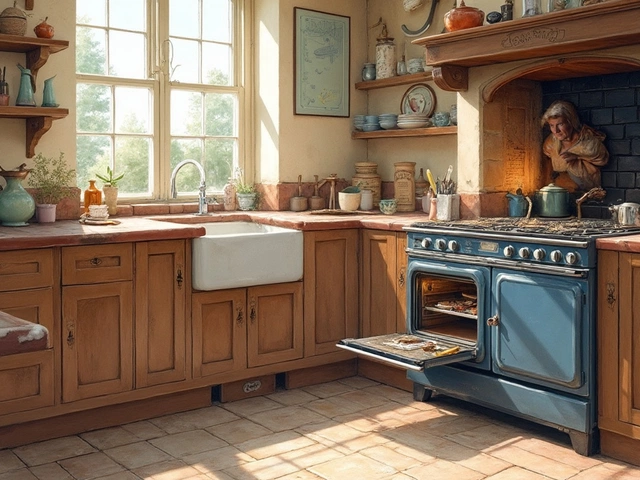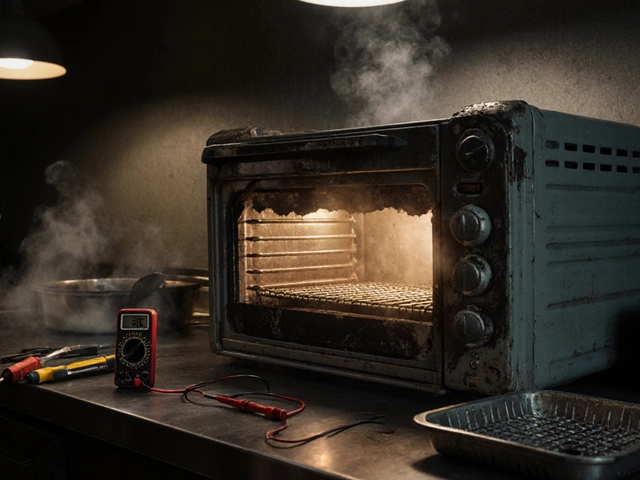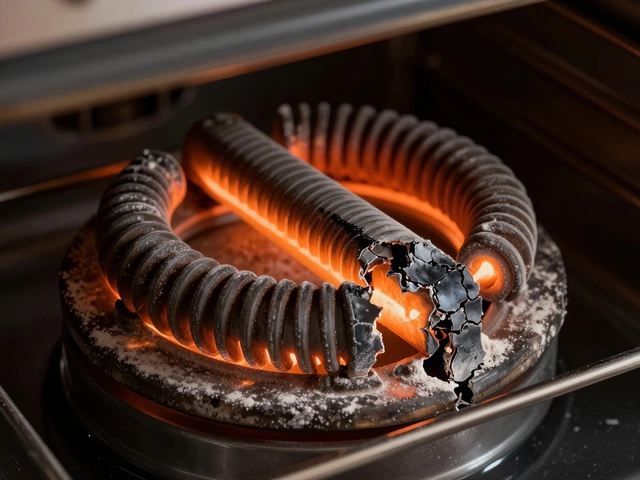Got a broken fridge, a temperamental oven, or a noisy washing machine? You don’t have to drop a fortune on a replacement. Most household appliances have simple issues that you can fix yourself, or at least prolong their life with a bit of maintenance. Below are the top ways to keep your gadgets running without breaking the bank.
Start with the low‑effort jobs that need only a screwdriver or a multimeter. If your electric hob isn’t heating, the element is often the culprit – replace it yourself with a few minutes of work and a cheap part. A cold oven? The heating element or thermostat may be faulty; swapping the element yourself usually costs under £30 and a half‑hour of your time.
For a fridge that’s running but not cooling, check the condenser coils. Dust buildup is a common cause of reduced efficiency, and cleaning them with a brush can restore performance. Similarly, a dishwasher that won’t spin often has a blocked spray arm or a loose pump connection – both are easy to inspect and fix.
Regular upkeep is the secret sauce for long‑lasting appliances. Flush your water heater at least once a year to prevent sediment buildup that forces the unit to work harder. Replace your kitchen extractor fan every 5‑7 years, or sooner if you notice reduced airflow or strange noises.
Heat pumps, both air‑source and ground‑source, lose efficiency when filters or fans get clogged. A quick filter change every few months can keep the system running warm in winter and cool in summer without pricey service calls.
When it comes to washing machines, keep an eye on the drum balance and hose connections. A wobbling washer can damage bearings early – tightening the legs or re‑leveling the machine often solves the problem and saves a costly bearing replacement.
Remember, not every issue should be DIY. If you encounter gas‑related boiler problems, electrical faults beyond basic component swaps, or a heat pump that refuses to blow warm air after basic checks, call a qualified technician. Professional service avoids dangerous mistakes and can be cheaper in the long run than repeated failed DIY attempts.
Bottom line: a mix of quick fixes, routine maintenance, and smart decisions about when to call the pros lets you keep appliances humming while keeping your wallet happy. Start with one simple task today – you’ll be surprised how much you can save.

Deciding between repairing and replacing a freezer can be tricky. This article guides you through evaluating repair costs, expected lifespan, and energy efficiency before making a decision. It provides practical advice to help you make an economical choice, whether to fix or replace your freezer. Learn important factors to consider, like repair frequency and environmental impact, to ensure you spend wisely.

When facing a broken boiler, many homeowners find themselves debating the merits of repairing versus replacing. Considering factors like costs, age of the boiler, frequency of issues, and energy efficiency can help make an informed decision. Exploring repair benefits as a cost-saving solution might be worthwhile for some, while others may find replacement offers better long-term advantages. Understanding your system's specific needs ensures optimal performance during the colder months.

If your electric oven suddenly stops working, don't panic. This article explores common issues with electric ovens and provides practical tips for troubleshooting and repair. From understanding how different components work to knowing when it's time to call a professional, you'll find the go-to advice you need to get your oven back in working order. Avoid the hassle of guesswork and get straightforward guidance on keeping your kitchen running smoothly. Practical insights on oven maintenance await you.

If your electric oven isn't heating, it's usually due to a broken element, faulty thermostat, or blown thermal fuse. Learn how to diagnose and fix the most common causes quickly and safely.

Discover how much boiler service costs in 2025, what affects the price, what's included, and tips to save money while keeping your heating safe and reliable.

Learn how to tell if your oven element is blown by checking for visible damage, testing with a multimeter, and observing oven behavior. Most oven heating issues are simple fixes.

Wondering how long your water heater should last? This article dives into the expected lifespan of various types of water heaters, factors impacting their longevity, and signs it might be time for a replacement. With practical tips on maintenance, you can extend the life of your heater and avoid breakdowns. Learn what to watch out for to ensure you have hot water when you need it, without unexpected surprises.